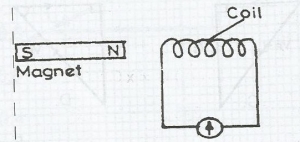I. they can be represented in magnitude and direction by the three sides of a triangle taken in order.
II. their lines of action meet at a point.
III. the magnitude of anyone equals the magnitude of the resultant of the other two.
IV. any one force is the equilibrant of the other two.
A. I & II only
B. II & III only
C. II, III & IV only
D. I, II, III & IV
E. I, III & IV only
Correct Answer:
Option D – I, II, III & IV





